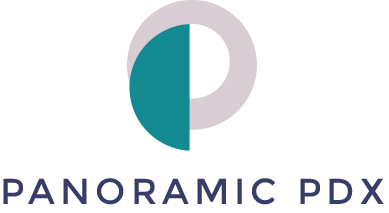
Therapy for Burnout
You were never meant to disappear inside your own story.
Come Back to Yourself
Burnout isn’t just about rest. It’s about reconnecting with who you are—or meeting yourself with clarity for the first time.
Burnout doesn’t always announce itself.
It creeps in slowly—disguised as stress, overcommitment, restlessness, or a strange kind of flatness you can’t quite name. At first, you might just feel tired. A little behind. Like you’re one good weekend away from feeling okay again.
Burnout isn’t just about jobs or office culture. It can come from caregiving, from activism, from constantly being the one who holds things together. It can come from creative work that used to bring you joy. From chronic over-responsibility. From the quiet labor of code-switching, masking, or managing other people’s comfort.
But eventually, even rest stops working. And the more you try to push through, the more distant you start to feel from the version of yourself that once felt creative, grounded, or connected.
You’re still here, technically. But that version of you? Gone—spirited away without warning. And there’s nothing transcendent about it.
This kind of self-loss is wholly decentering. Your priorities, interests, values—your very sense of identity—can feel like they’ve been stolen.
That disconnect from your self is not accidental. It’s what happens when your energy is constantly extracted, your needs deprioritized, and your identity tied to performance.
The question becomes not just “How do I recover?” but “Who am I now?”
That question matters. And you deserve the time and space to ask it out loud.
What I’ve Learned From Listening
Burnout doesn’t usually come with sirens. Sometimes it’s quiet—a slow fade into flatness, a calendar that fills faster than your capacity, a body that feels permanently braced.
I’ve worked with people who once felt lit up by their work, grounded in their relationships, nourished by creativity—and who now feel detached, drained, unsure when the shift happened.
Some keep pushing, convinced they should be able to handle it. Others carry shame for needing rest at all. I’ve heard stories of Sunday night dread, of disappearing drive, of late-night scrolling just to feel something that belongs to them.
What I’ve learned is this: burnout doesn’t mean you’re not enough. It’s a nervous system doing its best to survive in conditions that are unsustainable. And the way back isn’t about “bouncing back”—it’s about learning to move differently. With less urgency. More truth. More care.
What If You Could Catch Burnout Sooner?
The World Health Organization defines burnout as a syndrome “resulting from chronic workplace stress that has not been successfully managed.” It’s characterized by:
Feelings of energy depletion or exhaustion
Increased mental distance from one’s job, or feelings of cynicism
Reduced professional efficacy
These are nervous system responses—not character flaws. I’ve read this definition aloud to clients, and more than once, emotions wash over their face as they finally feel seen and understood.
You don’t have to wait until you’re at a breaking point to begin tending to your needs. Here are a couple of starting points if you’re curious:
Mayo Clinic’s guide to burnout – A clear, evidence-based overview of symptoms and signs
Oldenburg Burnout Inventory (OLBI) – A free, research-supported reflection tool on exhaustion and disengagement
These aren’t diagnostic tools—they’re invitations to begin noticing what your body may already know.
You’re still in there. Let’s find your way back you.
Begin the Inquiry Process.

We Often Talk About:
Acceptance • ADHD • Agency • Anger • Anxiety • Autism • Boundaries • Caregiver Fatigue • Clarity • Code-Switching • Compassion Fatigue • Creativity & Creative Blocks • Decision Fatigue • Dissociation • Emotional Labor • Enoughness • Executive Dysfunction • Flexibility • Guilt • Hyper-Independence • Identity • Joy • Masking • Meltdowns • Mindfulness • Nervous System Regulation • Neurodivergence • Numbness • Perfectionism • Permission • People-Pleasing • Play • Purpose • Reconnection • Reflection • Repair • Rest • Safety • Self-Compassion • Shame • Sleep Disturbances • Softness • Spaciousness • Systemic Harm • Trauma • Unlearning • Values • Workplace Stress
My Philosophy of Care
Burnout asks everything of you. Therapy can help you remember who you are.
This is a space where you don’t have to prove how tired you are. Where you don’t need to be productive, insightful, or articulate to be worthy of care.
You can show up messy, unsure, over it—or quietly unraveling. Together, we’ll slow down enough to listen to what your body has been trying to say. To make space for grief, for permission, for softness, for enoughness.

